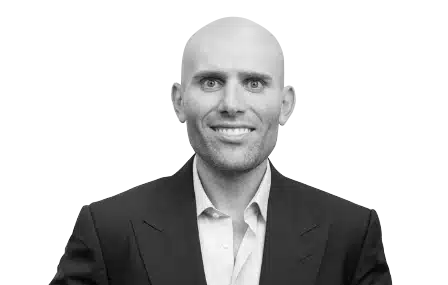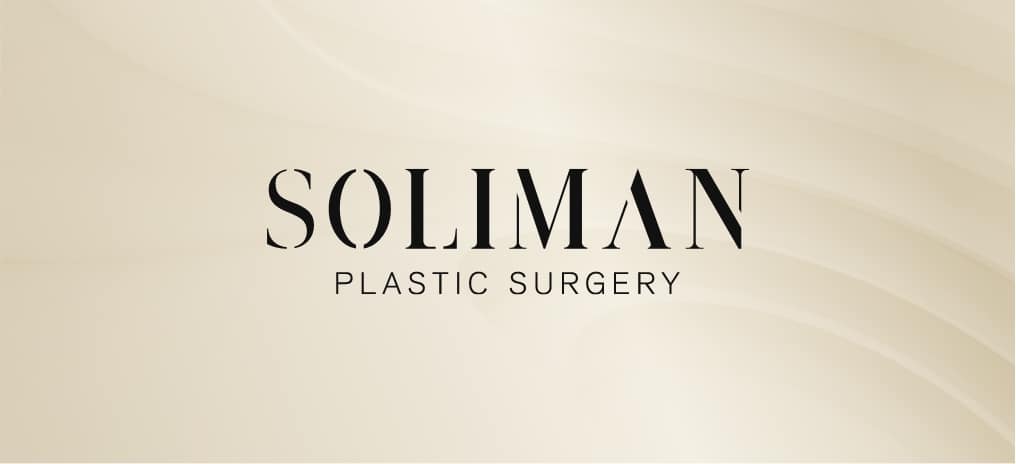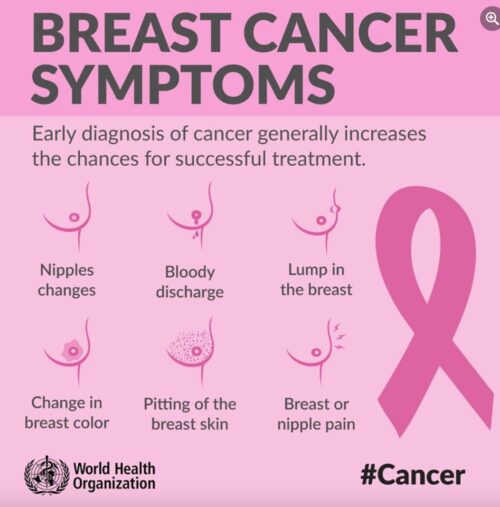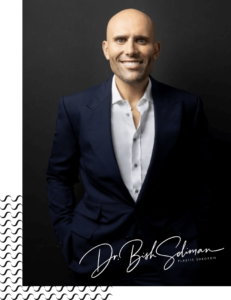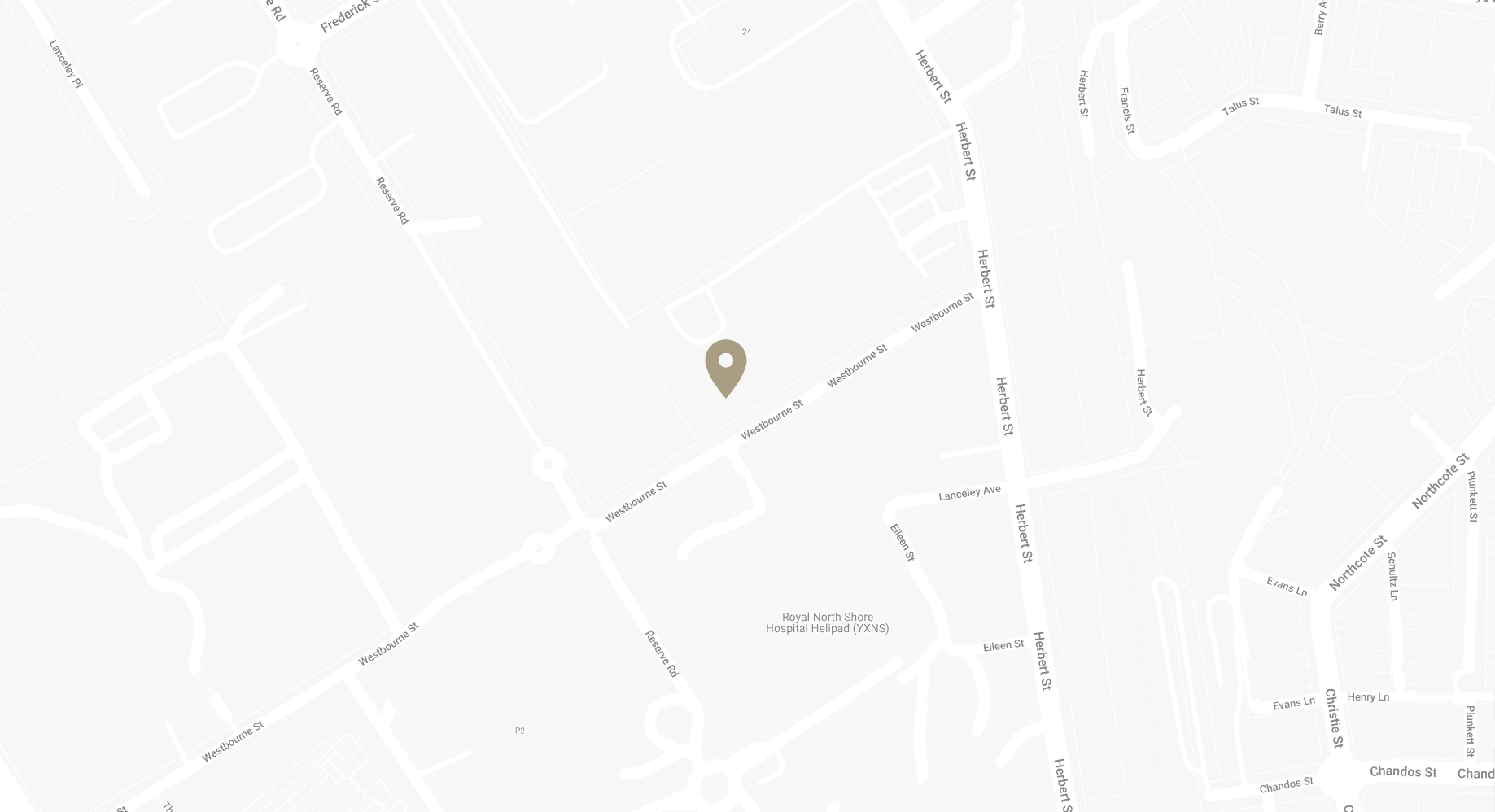Breast cancer is a topic that resonates deeply within the Australian community. As one of the most prevalent health concerns in the country, it has touched the lives of countless individuals, either directly or through a loved one. The path of medicine and research has progressed, offering hope and solutions, but awareness remains our foremost ally. This condition underscores the undeniable value of understanding, early detection, and prompt action. By broadening our collective knowledge and fostering a proactive approach, Australians can stand together, better equipped, in the face of this persistent health challenge.
Dr Bish Soliman is a Sydney Specialist Plastic Surgeon regularly performing breast reconstruction using DIEP flap and other breast procedures.
Download Dr Bish Soliman Cosmetic Breast Surgery Guide
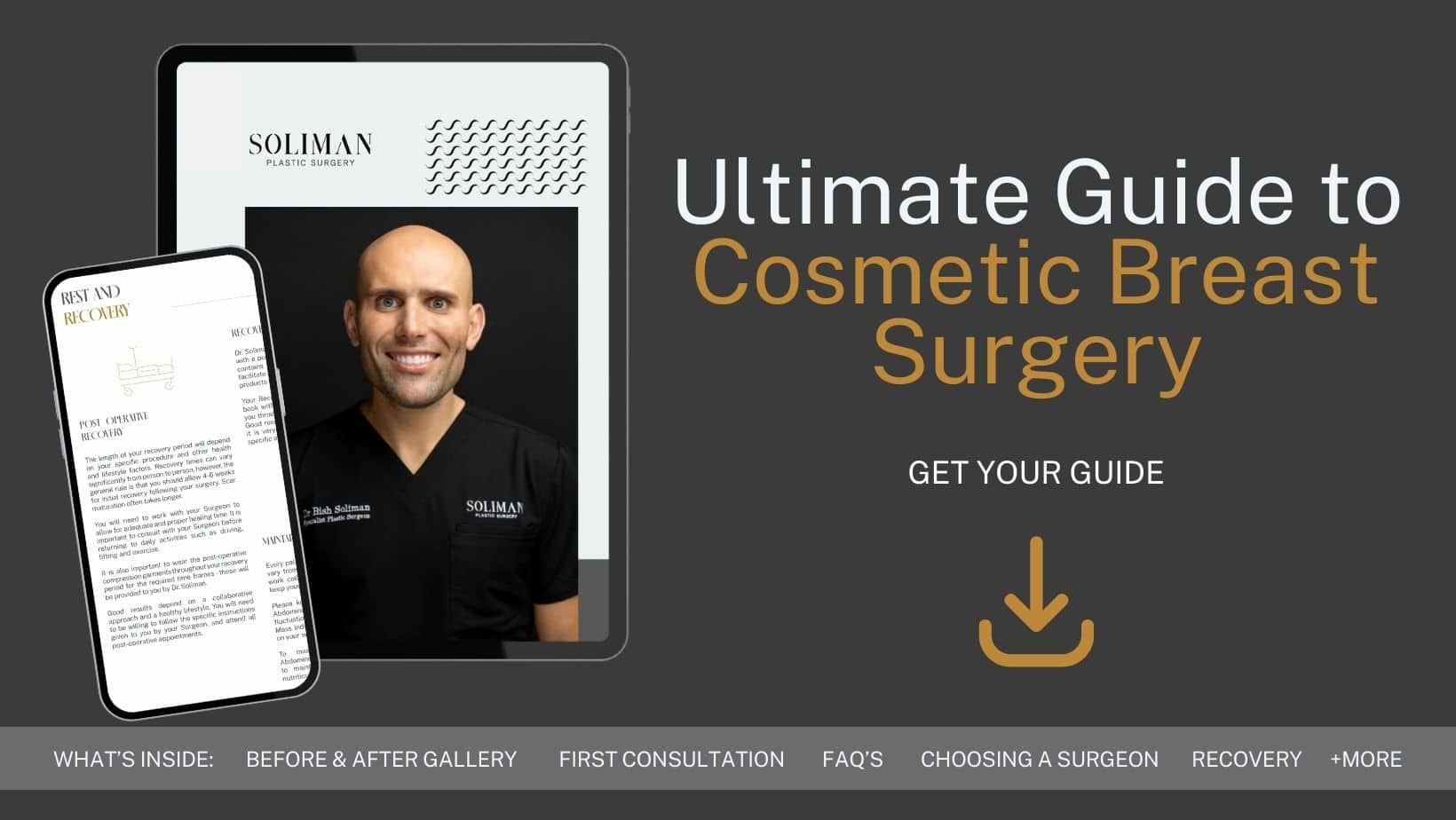
Breast Cancer Awareness in Australia
Breast cancer is a topic that’s pretty close to home for many Australians. It’s something that we, as a community, need to stay informed about. Being in the know can make all the difference. So, what’s being done in Australia to keep everyone updated and aware?
Public Awareness Campaigns
- All year round, there are campaigns that spread the word about breast cancer.
- You might have heard of Pink Ribbon Day and Breast Cancer Awareness Month; these are big deals that help shine a light on this important topic.
Community Initiatives
- It’s not just the big organisations; local communities are doing their bit too.
- In many towns and suburbs, you’ll find events, workshops, and groups where folks come together to chat, learn, and support one another.
Educational Resources
- If you’re keen to learn more, there’s no shortage of info out there.
- Whether you’re a fan of online reading or you like picking up brochures at your local clinic, there’s something for everyone to help them understand breast cancer, the risks, and why catching it early is so important.
Awareness is more than just knowing; it’s about understanding and acting. With all these efforts, Australia is striving to make sure that everyone has the knowledge and tools they need to look out for themselves and their loved ones.
Understanding the Risk
When we chat about breast cancer, it’s essential to get a handle on the risk factors. Recognising the risks can help you make informed choices, look out for early signs, and potentially even change some lifestyle habits.
Common Risk Factors
- Age: Like many health concerns, the older you get, the higher your risk of developing breast cancer. It’s essential to be more vigilant as the years roll by.
- Family History: If your mum, sister, or auntie had breast cancer, especially before hitting the age of 50, your risk could be a bit higher. This isn’t a guarantee you’ll face the same issue, but it’s worth noting.
- Genetic Mutations: You might have heard of genes like BRCA1 and BRCA2. Mutations in these genes can increase the risk of breast cancer. Some women choose to get tested for these genes, especially if there’s a strong family history.
- Previous Breast Conditions: If you’ve had certain types of lumps in your breasts or specific benign (not cancer) breast diseases, you might have a slightly increased risk.
- Exposure to Estrogen: Starting periods early or hitting menopause later than usual means a longer lifetime exposure to oestrogen, which can up the risk a touch.
- Certain Treatments: Surprisingly, having radiation treatment to the chest area as a kid or young adult can increase breast cancer risk later in life.
Importance of Knowing Your Risk
- Informed Decisions: By understanding your risk, you’re better placed to decide on things like when to start screening or which type of screening might be best for you.
- Lifestyle Choices: While we can’t change our genes or our age, there are things we can influence. By understanding risk, you might choose to tweak aspects of your lifestyle, like drinking less alcohol or maintaining a healthy weight.
- Early Detection: If you know you’re at a higher risk, you’re more likely to keep an eye out for any changes and get them checked out. Catching things early can make a big difference.
- Peace of Mind: Sometimes, just knowing can ease the mind. If your risks are lower, you can find some comfort. If they’re higher, you can take proactive steps.
Understanding your breast cancer risk isn’t about getting scared; it’s about being prepared and empowered. With the right knowledge, you’re in a much better position to take care of yourself and make the best choices for your health.
Breast Cancer Screening in Australia
When it comes to looking after yourself and your health, staying a step ahead can make a world of difference. Australia offers various screening options to help you keep tabs on your health, so let’s go over what’s on offer and why it matters.
Available Screening Tests
- Mammography: The big one that most folks know about. It’s a special type of X-ray that checks for changes in the breast. It can spot problems before they become noticeable, making it a top choice for regular check-ups.
- Ultrasound: While mammograms are top-notch, sometimes you need a different view. Especially if you’ve got denser breast tissue, an ultrasound can offer a clearer picture.
- MRI (Magnetic Resonance Imaging): This isn’t your everyday screening test. It’s typically reserved for those who have a higher risk of breast cancer, maybe because of a strong family history or certain genetic factors. It gives a detailed image of the breast, using magnets and radio waves.
- Biopsy: If a test spots something different, a doctor might suggest taking a small sample of tissue to check it out properly. It’s a way to see if the unusual bit is cancer or just a benign lump.
Benefits of Early Detection
- Better Treatment Outcomes: If you find breast cancer early, before it has a chance to spread, the treatments can be more straightforward and more successful.
- More Treatment Options: When caught early, you often have a broader range of treatments to choose from. That can mean less invasive procedures and a better quality of life during treatment.
- Increased Survival Rates: This one’s pretty straightforward. When you find and treat breast cancer early, your chances of beating it and living a long, healthy life shoot up.
- Peace of Mind: Regular screening can also offer a bit of reassurance. Knowing you’re being proactive and doing regular check-ups can put your mind at ease.
Mammographic Screening
Mammography is the primary method used for breast cancer screening.
- Procedure: It involves taking X-ray images of the breast to detect abnormalities.
- Frequency: It’s recommended for women aged 50 to 74 to have a mammogram every two years.
- Benefits and Limitations: While mammography is effective in detecting early-stage breast cancer, it has limitations.
Genetic Testing
Genetic testing for breast cancer typically focuses on identifying mutations in the BRCA1 and BRCA2 genes which significantly increase the risk of developing breast cancer.
- Who Should Consider: Individuals with a strong family history of breast cancer or known genetic mutations in the family are advised to consider genetic testing.
- Procedure: Genetic testing involves taking a blood or saliva sample which is then analysed for specific genetic mutations.
- Implications: Understanding your genetic risk can aid in making informed decisions regarding surveillance, preventive measures, and even elective surgery.
Other Testing Methods
Beyond mammography and genetic testing, other modalities can also be employed based on individual risk profiles.
- Ultrasound: Ultrasound is often used for individuals with dense breast tissue where mammography might be less effective.
- MRI: MRI is typically reserved for individuals at high risk due to family history or genetic factors.
- Clinical Breast Examination: A clinical breast examination by a healthcare professional can also be an instrumental part of an early detection strategy.
The Importance of Breast Cancer Awareness
Awareness plays a pivotal role in early detection. Early detection can lead to better outcomes. Here’s why breast cancer awareness is essential:
- Early Detection: The earlier the diagnosis, the better the chances of successful treatment. Awareness ensures that individuals know the signs and seek help promptly.
- Educating Communities: When communities are informed, they can support and guide one another, fostering a community spirit of vigilance and care.
- Reducing Fear: With knowledge comes understanding. By knowing what to expect and how to proceed, unnecessary fears can be reduced.
Common Signs and Symptoms of Breast Cancer
Breast cancer may not always show symptoms in its initial stages. However, being aware of these signs can help in its early detection:
- Lumps: A lump in the breast or underarm that persists after the menstrual cycle. Not all lumps are cancerous, but they should be checked.
- Skin Changes: Unusual redness, dimpling, or puckering of the breast skin.
- Discharge: Any unexplained nipple discharge, particularly if it’s bloody.
- Changes in Shape: Unusual changes in the size, shape, or appearance of the breast.
Steps for Self-Examination
Self-examination is a simple procedure you can do at home:
- Look: Stand in front of a mirror. Look for any visible changes in size, shape, or skin texture.
- Feel: Using your fingers, feel your breasts in a circular motion. Start from the outside and move towards the nipple. Look out for any lump or thickening.
- Check Both Breasts: Make sure to examine both breasts each time.
The Australian Health System and Support
Australia’s health system offers extensive support for breast cancer patients:
- Screening Programs: Australia’s national breast screening program, BreastScreen Australia, provides free mammograms for eligible women.
- Treatment Options: Once diagnosed, patients have access to a variety of treatments including surgery, radiation therapy, and chemotherapy.
- Support Groups: Numerous organisations offer support for patients and their families, ensuring they’re not alone in their journey.
Breast Reconstruction Post Mastectomy
Breast reconstruction is a surgical procedure aimed at restoring the shape, appearance, and size of the breast after a mastectomy. It’s a personal decision and may not be suitable for everyone. Here are some points to consider:
Individual Preferences
- Some individuals find reconstruction significantly beneficial for their emotional recovery post mastectomy.
- Others may choose not to undergo further surgery, or opt for external prostheses.
Timing
- Reconstruction can be done at the same time as the mastectomy (immediate reconstruction) or at a later date (delayed reconstruction).
- The right timing can depend on various factors including the stage of cancer, overall health, and personal preferences.
FAQs about Cancer Awareness and Testing
What should I do if I have a family history of cancer?
- Having a family history of cancer can significantly increase your risk of developing cancer. In such situations, it’s advisable to consult with a healthcare professional to better understand your risk. They may recommend genetic counseling and possibly genetic testing to identify any inherited risk factors.
How can I get tested for cancer in Australia?
- There are several cancer screening programs and testing facilities across Australia. Consultation with a healthcare professional can guide you on the appropriate tests based on your age, gender, and risk factors. Common screenings include mammograms for breast cancer, Pap smears for cervical cancer, and colonoscopies for colorectal cancer.
Are cancer screenings covered by healthcare in Australia?
- Many cancer screenings are covered or subsidised by the Australian healthcare system, particularly through the Medicare system. However, the coverage may vary, and it’s advisable to check with healthcare providers or the relevant government health department for precise information.
Are there any lifestyle changes I can make to reduce my risk of cancer?
- Yes, adopting a healthier lifestyle can play a significant role in reducing your risk of cancer. This includes maintaining a balanced diet rich in fruits, vegetables, and whole grains, engaging in regular physical activity, and avoiding tobacco products. Additionally, limiting alcohol intake and protecting your skin from excessive sun exposure are also advisable.
Where can I find resources and support for cancer awareness and testing in Australia?
- Numerous organisations, community groups, and health departments provide resources and support. Websites of Cancer Council Australia, BreastScreen Australia, and the Department of Health are good starting points. Additionally, local healthcare providers can provide information and direct you to support services in your area.
Further Reading about Breast Reconstruction with Dr Bish Soliman
- Read Dr Soliman’s Blog about Options for Breast Reconstruction – Immediate or Delayed
- Read Dr Soliman’s Blog about Recovery after Breast Reconstruction Surgery (DIEP)
- Read Dr Soliman’s Blog about DIEP Flap Breast Reconstruction: What to Expect
- Read Dr Soliman’s Blog about Breast DIEP Sydney
- Read Dr Soliman’s Blog about Medicare for DIEP Breast Reconstruction
- Read Dr Soliman’s Blog about How Much Is Breast Reconstruction in Australia?
- Read Dr Soliman’s Blog about Why He Prefers DIEP Breast Reconstruction
- Read Dr Soliman’s Blog about Recovery After Skin Cancer Excision
Medical References about Cancer Awareness and Testing in Australia
- Breast Cancer Overview – Australia Government
- Understanding Breast Cancer – Breast Cancer Network Australia
- Breast Cancer – Australian Breast Cancer Research
- BreastScreen Australia Program – Australia Government
- Types of Breas Cancer – Cancer Council Australia
